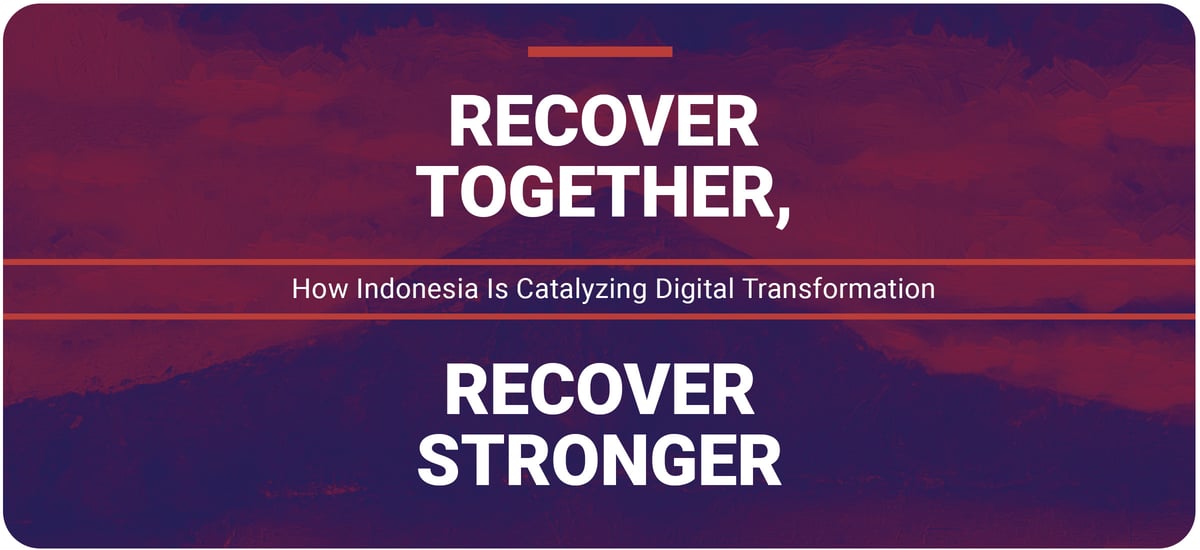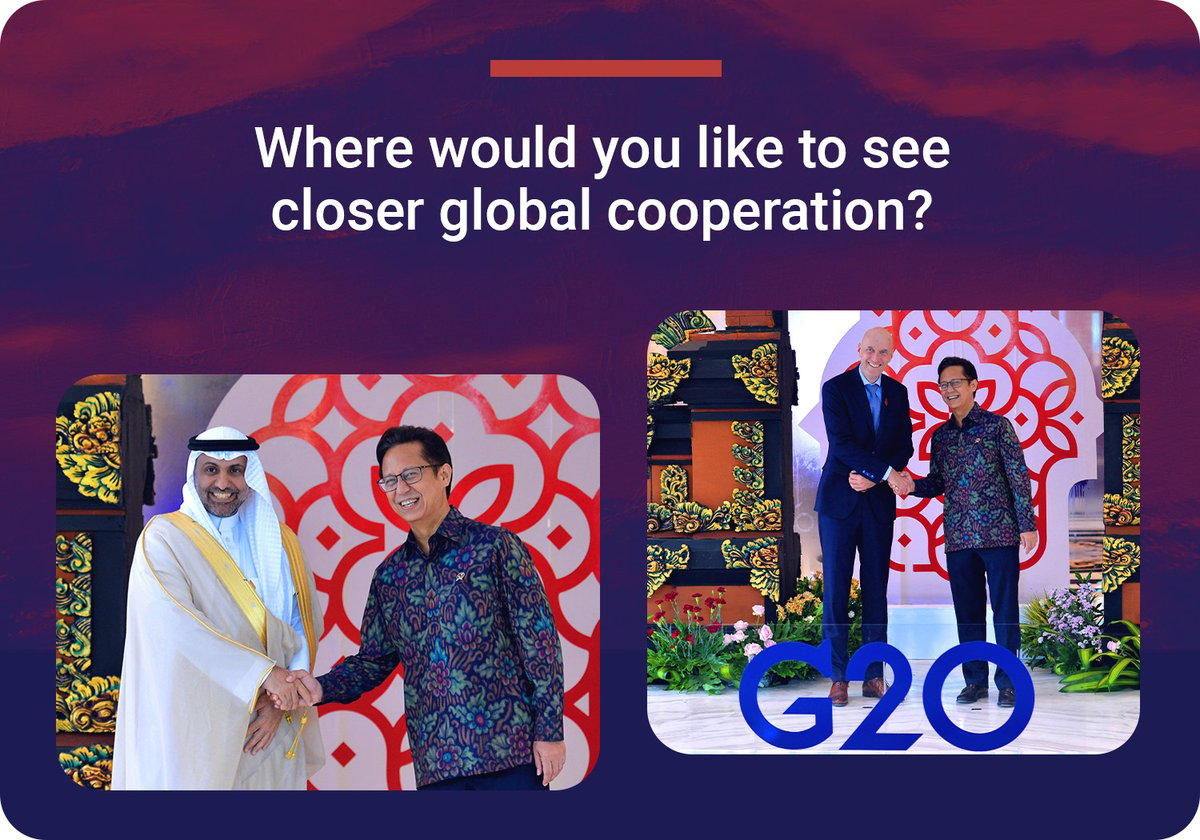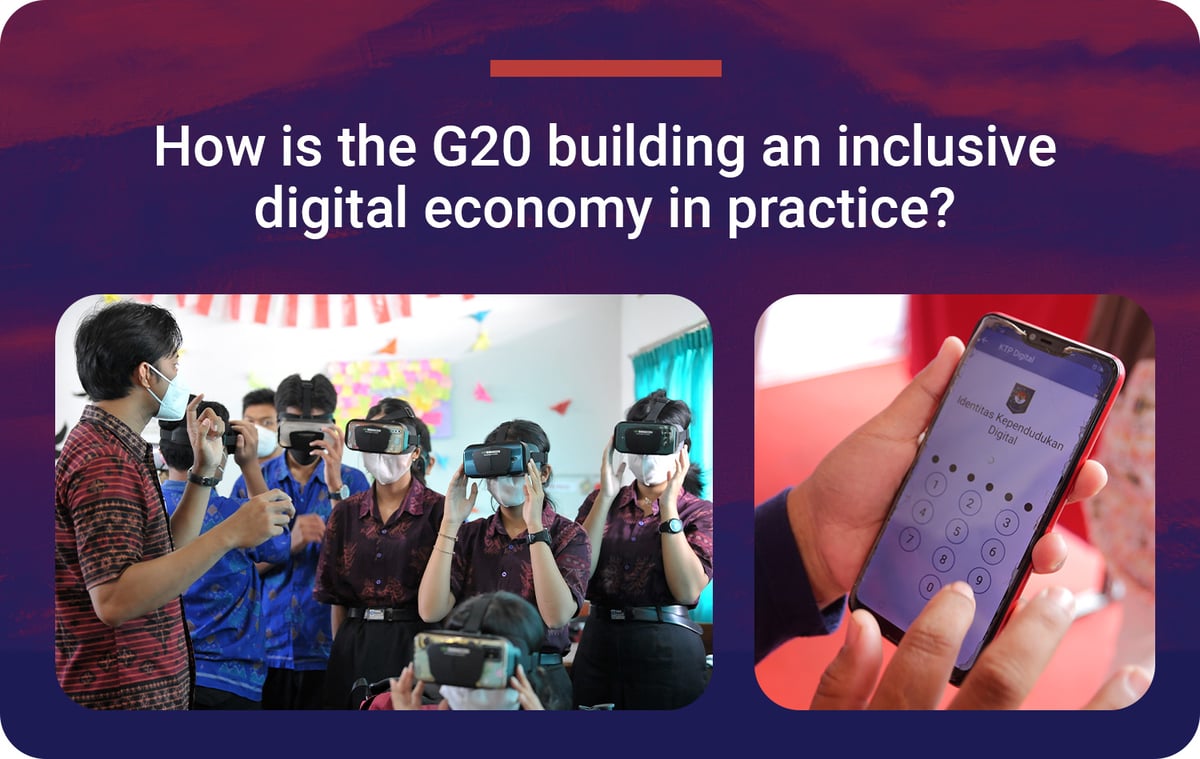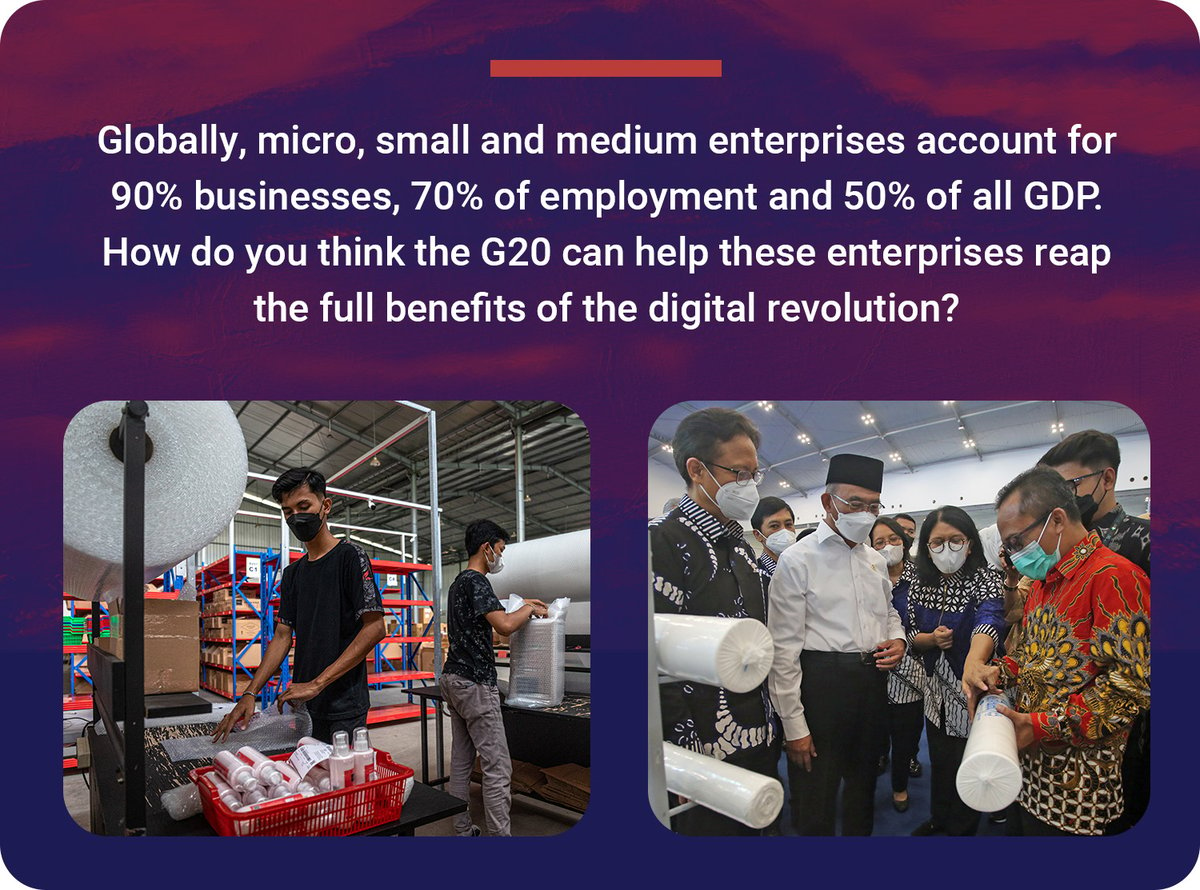
Recover Together, Recover Stronger: How Indonesia Is Catalyzing Digital Transformation
Digital transformation has been a bright spot of the pandemic, buoying the global economy and enabling businesses to stay nimble as consumers moved online. Over the next decade, the digital economy will continue to boom as new technologies and habits become a way of life, with 70% of new economic value expected to come from digitally enabled platform business models (World Economic Forum).
“Indonesia’s G20 presidency has created historic momentum for the country to set the course of global digital economy development,” says Johnny G. Plate, Indonesia’s Minister for Communication and Information Technology. To foster a stronger, more inclusive and collaborative digital economy, a new landscape of global cooperation is crucial.
Ahead of the 17th G20 Summit in November 2022, Bloomberg Media Studios spoke to Indonesia’s Minister of Tourism and Creative Economy, Sandiaga Uno, on how Indonesia is advancing digitalization as both a social leveler and economic imperative for the G20 – and what closing the digital divide looks like in practice.

Minister Sandiaga Uno: G20 2022 carries the theme, “Recover Together, Recover Stronger.” With digital transformation, we will recover better. The unstoppable trend of digitalization also shows up in the other two G20 pillars: global health – where digital healthcare, vaccinations and testing have enabled us to bring the pandemic under control – and sustainability. With digital interventions, we will be able to strengthen the circular economy and handle food waste and biodiversity loss better. In early October, for example, we were able to plant 41,000 mangrove trees thanks to passengers opting into sustainable activities on ride-hailing platforms.
It’s important for the G20 Bali summit to discuss digitalization across every facet of our lives, from education to health, and entertainment to culinary culture. We will also explore how we can push for further transformation in various sectors and for specific segments, like digital nomads. Some of the old economy will converge with the new economy through the adoption of digital platforms, whether apps, Web3 or the metaverse. There are a lot of possibilities and a lot of potential for collaboration.

Minister Sandiaga Uno: There are three areas that will open up more possibilities and greater cooperation in the digital economy – not only among G20 governments, but also between public and private sectors. The first is payments. We need to democratize payment platforms so they reach people at the bottom of the pyramid. The transition to a cashless society with inclusive payment ecosystems needs support from the G20 to invest in local know-how.
The second is what I would term fintech. Only 20% of Indonesia’s creative economy and micro, small and medium enterprises have access to financing – so fintech will be an enabling solution.
The third is cybersecurity. We are under-investing in cybersecurity, particularly across some of the developing countries of the G20. As the global economy becomes increasingly digital, we are also more vulnerable to digital threats and cyber attacks. We need to put more investment, more capital into cybersecurity. Through collaboration, we can increase our resilience against potential threats and disruptions.

Minister Sandiaga Uno: The meeting of the G20 is quite an achievement. In an era of volatility, uncertainty, complexity and ambiguity, fueled by geopolitical tensions, the G20 is still in the same room, focusing on solutions and people-centered recovery.
The G20 is no longer just a group of the world’s largest economies. We need to think 10, 20, 50 years ahead. The G20 Tourism Working Group, for example, builds upon the work of G20 engagement groups such as Women 20 and Youth 20 because women and the young generation are the demographics we need to focus on when building post-pandemic economic recovery. We are also engaging with the business group Business 20.
In several G20 working groups, we talked about linking the creative economy with tourism, as well as the need for public-private partnerships. This is going to be a central mindset going forward. We believe the Bali Guidelines, which emphasize the welfare of local communities and creative economy actors, will be a gamechanger, and that the new wave of tourism will focus on quality and sustainability. Travel activities will be more personalized, customized, localized and smaller in size. Nature and culture will play a significant role, where their interconnectivity will create a seamless flow of tourists, along with meaningful jobs. This is something we believe we can pass to India, the next president of the G20.

Minister Sandiaga Uno: The concept of “no one left behind” was central to the deliberations of the Tourism Working Group and the third ministerial meeting. After working for almost one full year on this, both virtually and in-person, the G20 has agreed on a fundamental shift and a blueprint for economic recovery, formalized in the Bali Guidelines.
In Indonesia, the tourism and creative economies are seeing significant improvement. In September, around 600 million domestic tourists were on the move, way ahead of the target of 550 million for the entire year. Indonesia's creative economy is now contributing to 7.5% of GDP and its exports have exceeded $25 billion for the very first time, led by three subsectors: fashion, crafts and culinary.
As the largest country in ASEAN, Indonesia plays a significant role in making sure these numbers translate into good and meaningful jobs for young millennials and Gen-Zs coming into the job market. We are in the process of creating 1.1 million new and better quality jobs this year, and are on course to add 4.4 million jobs by 2024.
But before these jobs are created and can provide livelihoods, we need to ensure our human capital is equipped with new skills. In Indonesia, we need about 600,000 digital talents who are not only familiar with coding and creating apps, but also proficient in Industry 4.0 skills in areas like artificial intelligence and big data analysis. The G20 will have to take a prominent role in making sure these skills are available to younger generations.
To solve global problems, we have to work together. We have to change and we have to adapt; we have to innovate and we have to collaborate.
This article is part of Bloomberg Media Studio’s partnership with Indonesia’s Ministry of Communication and Information Technology, showcasing how the country is driving solutions for today's biggest challenges through its G20 presidency. Learn more about the other two G20 themes: Resilient Global Health Architecture and the Sustainable Energy Transition.
